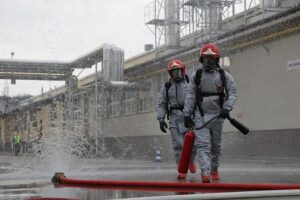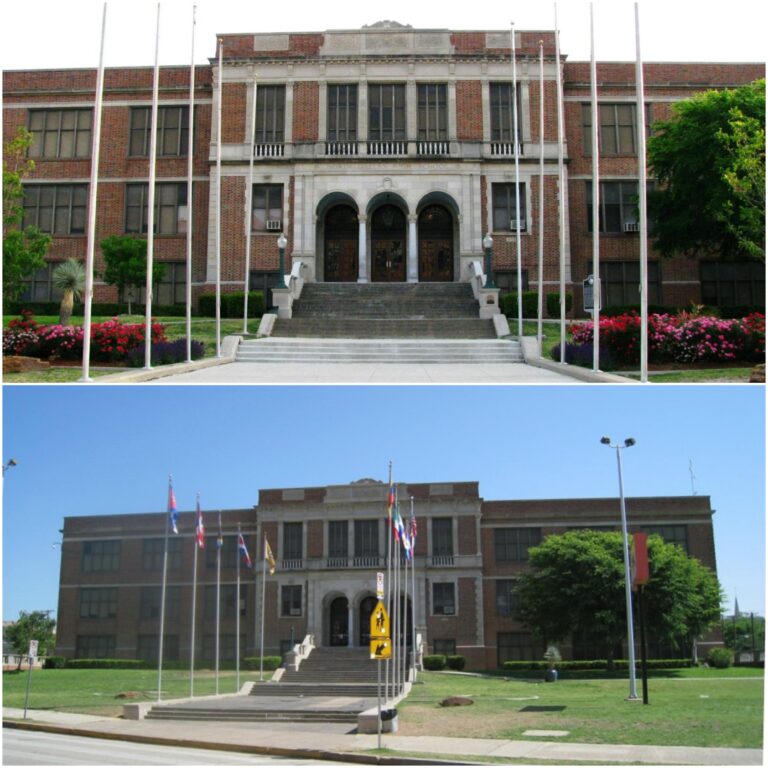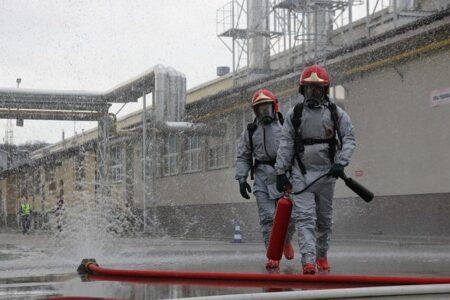North Texas Public High Schools Emerge as National Leaders in Education
A number of public high schools across North Texas have recently been distinguished on the national stage, earning top rankings in the latest U.S. News & World Report evaluation. These accolades highlight the regionŌĆÖs unwavering dedication to fostering academic achievement, college preparedness, and overall student excellence. Schools from key cities such as Fort Worth, Plano, and Frisco have particularly excelled, demonstrating superior performance in graduation rates, college readiness, and standardized assessments. This recognition reflects the collective efforts of educators, students, and communities committed to cultivating environments where learning and growth flourish.
These standout schools have shown exceptional strengths across various disciplines, including STEM, liberal arts, and extracurricular activities, which have contributed significantly to their elevated rankings. The distinguishing characteristics of these institutions include:
- Exceptional college readiness scores driven by strong Advanced Placement (AP) exam results
- Graduation rates consistently exceeding 90%, signaling student retention and success
- Inclusive support systems tailored to meet the needs of diverse student populations
| High School | Location | Graduation Rate | College Readiness |
|---|---|---|---|
| Northwood High School | Fort Worth | 96% | 89% |
| Plano West Senior High | Plano | 97% | 92% |
| Frisco Liberty High | Frisco | 95% | 90% |
What Fuels Success in Fort Worth Area Public Schools?
The impressive achievements of Fort Worth area public schools stem from a blend of visionary leadership, active community involvement, and comprehensive academic offerings. School administrators emphasize customized learning experiences that address individual student needs, promoting both intellectual and emotional development. Collaborations with local industries and higher education institutions enrich the curriculum, providing students with hands-on learning and internship opportunities that bridge classroom knowledge with real-world application.
Additionally, significant investments in technology and extracurricular programs enhance student engagement. These schools prioritize STEM education while also nurturing talents in the arts and athletics, ensuring students receive a balanced and holistic education. Key elements contributing to their success include:
- Adoption of innovative instructional strategies such as project-based and experiential learning
- Robust community and parental participation in school governance and activities
- Comprehensive college preparation initiatives including AP coursework and dedicated counseling
- Support frameworks designed for special education and diverse learner needs
- Ongoing professional development for educators to stay abreast of evolving educational methodologies
| Metric | Performance |
|---|---|
| Graduation Rate | Above 90% |
| College Enrollment Rate | Over 85% |
| Average Student-Teacher Ratio | 18:1 |
| AP Course Participation | Approximately 50% of students |
Equipping North Texas Students for College and Career Pathways
Public high schools in North Texas have developed comprehensive programs that integrate rigorous academics with practical career preparation. Students have access to a wide array of Advanced Placement classes, dual-enrollment options with nearby colleges, and specialized career and technical education (CTE) tracks. These initiatives are complemented by internship placements, mentorship opportunities, and partnerships with local enterprises, providing students with invaluable exposure to professional environments in sectors such as healthcare, technology, and engineering.
Core Approaches Include:
- Dedicated counseling focused on college admissions guidance and career exploration
- Certification programs aligned with industry standards to boost employability immediately after graduation
- Extracurricular offerings that support STEM, arts, and leadership development, catering to diverse student interests
| Program | Area of Focus | Benefit to Students |
|---|---|---|
| Dual-Enrollment Courses | Academic Advancement | Opportunity to earn college credits while in high school |
| Career and Technical Education (CTE) | Workforce Readiness | Industry-recognized certifications |
| Internship Collaborations | Professional Development | Hands-on experience in real-world settings |
Advice for Families Choosing Premier Public High Schools in North Texas
For families seeking to provide their children with a strong educational foundation, evaluating public high schools in North Texas requires careful consideration of academic performance, extracurricular diversity, and community involvement. Schools that consistently rank highly on national lists like U.S. News & World Report often excel in these domains, offering students a competitive edge for college and career success.
When selecting a school, families should focus on the following criteria:
- Academic Excellence: Prioritize schools with strong standardized test results and a wide range of AP courses.
- Student Support Services: Assess the availability of counseling, tutoring, and specialized education programs.
- Extracurricular Variety: Look for institutions offering diverse clubs, sports, and arts programs to encourage holistic development.
- Community Engagement: Consider schools with active parent and community participation, which often correlates with a positive school culture.
| School | Graduation Rate | AP Participation Rate | Student-Teacher Ratio |
|---|---|---|---|
| Liberal Arts High School | 96% | 75% | 16:1 |
| Innovation STEM Academy | 93% | 82% | 18:1 |
| North Irving High School | 90% | 68% | 15:1 |
Final Thoughts on North Texas Public Education Achievements
As national rankings continue to spotlight educational excellence, North Texas public high schools reaffirm their status as leaders in preparing students for academic and professional success. The recognition from U.S. News & World Report not only celebrates current accomplishments but also inspires ongoing innovation and investment in education. For parents, educators, and policymakers, these achievements underscore the vital importance of nurturing schools that equip students with the skills and knowledge necessary to thrive in college and beyond.







